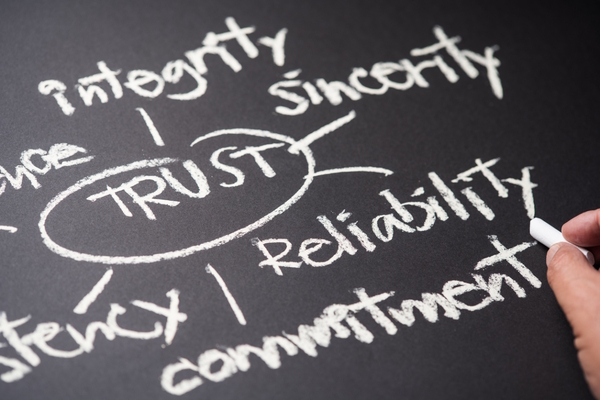Taking care with technology contracts-September 2021
Luke Jackson at leading lawyers Walker Morris explains how to avoid disputes when contracting for technology and manage them if they do occur.
We are seeing a technology revolution in manufacturing as companies invest heavily in automation and digitalisation. Undoubtedly, this has been accelerated by coronavirus and Brexit, which have highlighted the need for resilient processes – such as having capacity to scale production up or down at short notice and the ability to carry out more functions remotely – and, for many businesses, necessitated the adoption of new ways of working in order to survive.
There has been a huge increase in the use of robotics across all sectors – from food and drink, to car manufacture, to the production of white goods. Augmented reality is facilitating seamless collaboration between workers across continents and AI systems are streamlining processes and increasing production.
While investment in technology has the potential to offer greater capacity, improved data collection and fewer errors in production, the "Factory of the Future" will still rely on the right foundations being set and savvy, long-term decisions being nailed at the outset.
Enlisting the support of in-house IT teams or external technical consultants can help the business to take these decisions and avoid costly mistakes and wasted time. These specialists can verify that the technology is suited to the demands that will be put on it; how well it will fit into existing systems and the level of ongoing support likely to be needed (and how to source it). An experienced technology lawyer can advise on the legal implications and obligations placed on the customer by the terms of its supply.
Starter issues and the contract
The first consideration may seem obvious: take time to establish that there is no confusion between customer and vendor and that what the buyer wants, is what they will get. All too often we see disputes arise later down the line as a result of the parties not being on the same page from the outset.
Much future trouble, disruption, emotional expenditure and expense can be avoided by getting the contract right. A robust legal review can ensure that it is fair and practical and explains each party's rights and remedies in plain terms. A basic rule of thumb is that anything unclear – i.e., it can’t be unequivocally understood by a lay-person – should be reworded until all ambiguity is dispelled.
When negotiating the agreement always probe the positions it sets out and challenge the assumptions upon which it is based:
- ensure it details how milestones and performance indicators will be proven and has meaningful remedies should they not be reached;
- the exit strategy should be fully thought-out, straightforward and fair for both sides; and
- the contract should have a clear, workable dispute resolution procedure with an agreed forum for a ruling (expert determination, litigation, arbitration).
Essentially, a good contract puts customer and vendor on the same page from the outset and ensures that all parties know what is supposed to happen in a positive, productive partnership. Few suppliers actively seek to impose disingenuous terms or "gotchas" for the customer – far more commonly, misunderstanding or lack of contract management lies at the route of problems.
Licensing issues
A thorny, complex area you must keep on top of is licensing. Technology is commonly provided to customers on a "licenced" basis – a customer is granted the right to use the technology, but only on specified terms and the supplier retains the overall ownership of the product.
Sometimes, this licensing concept can introduce issues or uncertainty. A key one is how many of a client’s staff may use a piece of software? What about customers of the client, or contractors? And what happens if the number of users steadily increases over time?
To counter the common pitfall of "under-licensing" – that is, a client using a technology licence beyond (often unintentionally) the limits of the right granted in the contract – it is better to agree and know the user numbers allowed, with a sliding scale of fees, than have swingeing penalties imposed for an unintended violation of terms you were unaware of.
There is also the increasingly high-profile issue of who is responsible for the data protection of users or the details of people that are stored – the vendor or the client? Far-reaching GDPR legislation on ‘data protection principles’ demand that personal information is held securely and used fairly, lawfully and transparently. There are fines running into millions of pounds for those guilty of breaches, so this must be established and known by all involved.
And then there is the common question of who actually owns the tech solution? Customers may think they do, then run into an IP infringement claim when they try to sell it on or offer it as a service. It typifies a common clash of expectations.
The client wants to pay for a unique innovation that will give huge competitive advantage, not a function that might also be made available to competitors (even worse, a refined version - improved on the back of its early adoption), while the supplier wishes to sell widely.
Understandably, few aspire to devise complete one-offs that they can only market once – and the price for doing so will be much higher than an application that goes on to be used by many.
It means there must be concord on whether a solution is to be developed, priced and supplied as an entirely custom one and, if not, over what is the core software and which are the bespoke tweaks that the customer has the exclusive on.
The bottom line is to ensure you understand how and why a licensing requirement may arise and then how it is dealt with in the contract.
Managing a dispute if it does occur
Even with the best preparation, in the most well managed commercial relationships, disagreements can arise. If you find yourself in dispute, never ignore the problem and let it drag or impose confrontational penalties that might put you in breach of contract, such as withholding payments or threats to terminate.
Instead, always talk to a lawyer with a sound technology background. This is not the same as a rush to litigation, which should be the last resort. A good practitioner will advise exactly where you stand and communicate the problem to the other party, suggesting a collaborative approach to resolving it.
From a commercial perspective, it is much easier to put something right or adjust expectations when everyone is still committed to working together, rather than after relations have soured. Disputes are also often very damaging. They can harm reputations, derail projects, hit cashflow and postpone go-live dates.
Nevertheless, should the worst come to the worst, it is also important that you acted fast rather than buried your head in the sand. Putting up with issues can lead to a waiver of rights or being ‘estopped’ from making a later claim, should the worst come to the worst.
Finally, housekeeping disciplines that will help resolve disputes include keeping good records of even minor issues, especially if these amount to a cumulative breach of contract. Also log evidence of milestones and completions – or failures to meet them.
For all these reasons, ongoing advice and monitoring by a specialist IT Lawyer, whether inhouse or outsourced is a very sensible route.
Luke Jackson is a Senior Associate in the Technology and Digital Group at leading law firm Walker Morris. He specialises in technology matters, acting for a broad mix of clients on both the customer and supplier side of IT contracting.
Main image courtesy of iStockPhoto.com

Business Reporter Team
Most Viewed
Winston House, 3rd Floor, Units 306-309, 2-4 Dollis Park, London, N3 1HF
23-29 Hendon Lane, London, N3 1RT
020 8349 4363
© 2025, Lyonsdown Limited. Business Reporter® is a registered trademark of Lyonsdown Ltd. VAT registration number: 830519543





